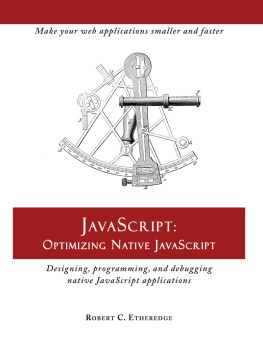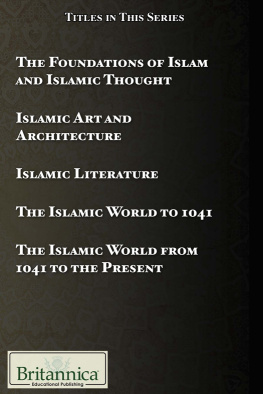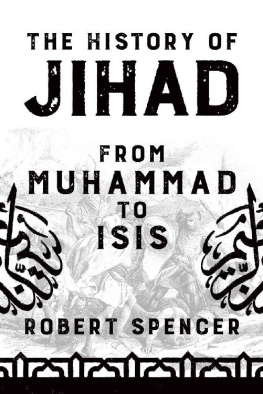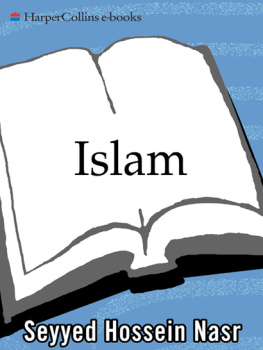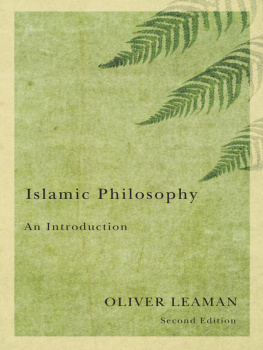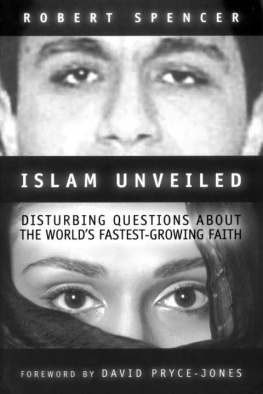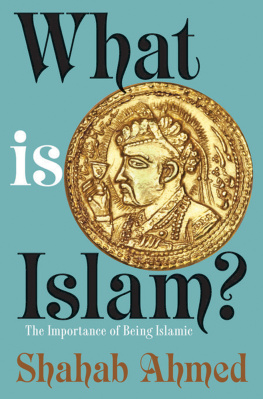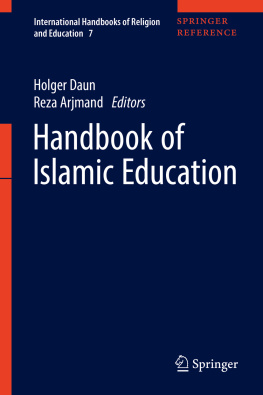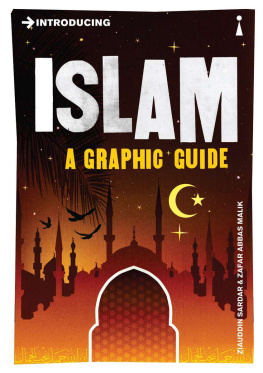ISLAMIC HISTORY
THE ISLAMIC WORLD
ISLAMIC
HISTORY
EDITED BY LAURA ETHEREDGE, ASSISTANT EDITOR, MIDDLE EAST GEOGRAPHY

Published in 2010 by Britannica Educational Publishing
(a trademark of Encyclopdia Britannica, Inc.)
in association with Rosen Educational Services, LLC
29 East 21st Street, New York, NY 10010.
Copyright 2010 Encyclopdia Britannica, Inc. Britannica, Encyclopdia Britannica, and the Thistle logo are registered trademarks of Encyclopdia Britannica, Inc. All rights reserved.
Rosen Educational Services materials copyright 2010 Rosen Educational Services, LLC.
All rights reserved.
Distributed exclusively by Rosen Educational Services.
For a listing of additional Britannica Educational Publishing titles, call toll free (800) 237-9932.
First Edition
Britannica Educational Publishing
Michael I. Levy: Executive Editor
Marilyn L. Barton: Senior Coordinator, Production Control
Steven Bosco: Director, Editorial Technologies
Lisa S. Braucher: Senior Producer and Data Editor
Yvette Charboneau: Senior Copy Editor
Kathy Nakamura: Manager, Media Acquisition
Laura Etheredge: Assistant Editor, Middle East Geography
Rosen Educational Services
Hope Lourie Killcoyne: Senior Editor and Project Manager
Joanne Randolph: Editor
Nelson S: Art Director
Nicole Russo: Designer
Introduction by Alexandra Hanson-Harding
Library of Congress Cataloging-in-Publication Data
Islamic history/edited by Laura S. Etheredge.1st ed.
p. cm.(The Islamic world)
In association with Rosen Educational Services.
Includes index.
ISBN 978-1-61530-061-7 (eBook)
1. Islamic countriesHistory. 2. Civilization, Islamic. 3. IslamHistory. I. Etheredge, Laura S.
DS35.63.I84 2010
909'.09767dc22
2009037874
On the cover: The Kabah is a small shrine near the centre of the Great Mosque in Mecca.
Considered by Muslims worldwide to be the most sacred spot on Earth, it is the place to
which Muslims orient themselves during daily prayers. Shutterstock.com
CONTENTS

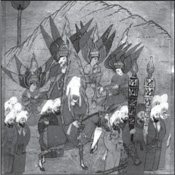
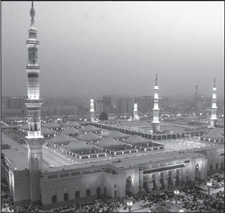

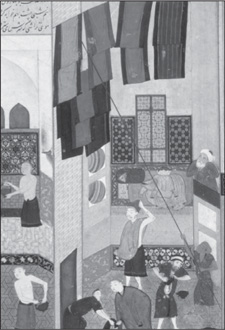

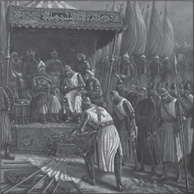
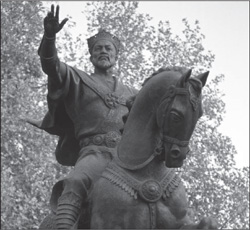



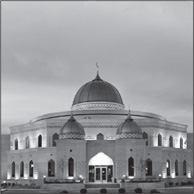
INTRODUCTION

A round 610 CE, a merchant meditating in a cave outside Mecca began to receive a series of revelations. From that vision grew Islam, one of the worlds great religions. What Islams prophet, Muhammad, began gave rise to a number of mighty empires. Islam proved to be such a powerful force that today, 1,400 years after a vision appeared to the Prophet, it is the worlds second largest religion. With more than one billion adherents, Islam has deep roots in the Asia, Africa, and Europe. More than half of todays Muslims live in Asia alone, from Turkey to Indonesia. Worldwide, a tremendous variety of people follow Islamfrom blue-eyed Bosnians to African Americans to the Uighurs of western China. After fourteen centuries, Islam remains one of the worlds fastest-growing faiths.
But Islam, by virtue of extremist acts that pressed its name into the consciousness of many as the 21st century was just beginning, faces a new hurdle. With the terrorist attacks of September 11, 2001 in the United Statesand subsequent attacks in Bali, London, Madrid, and elsewhereradical Islam seized global attention. The images, headlines, and aftermath of each attack indelibly linked those events with the name of Islam. In spite of the attention seized by Muslim extremists in recent history, however, the broader history of Islam is one of astonishing growth and great achievement. Islam itself is complex and multifaceted, and its faithful have, over centuries, been massively prolific in works of science, philosophy, theology, and the arts. From the luminous symmetry of the Taj Mahal to algebraic equations, from the tales of The Thousand and One Nights to the collected works of poets such as Rumi or Hafiz, Islam has provided a rich tapestry of contributions to world culture.
What binds Muslims? Muslims believe in one God and affirm Muhammad as His prophet. They hold Islam to be the third revelation of monotheismafter Judaism and Christianityand as such revere many of the prophets honoured in Jewish and Christian tradition, including Abraham, Noah, Moses, and Jesus. Muslims also share several spiritual guides. One is the Quran, the sacred scripture of Islam revealed by God to Muhammad and, for all Muslims, the very word of God. Another is the Hadith, the record of the traditions or sayings of the Prophet, revered by Muslims as a major source of religious law and moral guidance and second only to the authority of the Quran.
Incumbent upon every Muslim are five duties known collectively as the Five Pillars of Islam. First among these is the recitation of a profession of faith called the shahadah (There is no god but God and Muhammad is His prophet), which must be recited by a Muslim at least once in his or her lifetime. In addition, observant Muslims say prayers five times a day, give to charity, fast during the holy month of Ramadan, and, if they are able, make a pilgrimage to Mecca, Muhammads birthplace. In addition to the Five Pillars, many Muslims around the world also study the Quran.
In this book, you will learn why Arabia was such fertile ground for the emergence of a new faith. In its prehistorical period (3000 BCE500 CE), the dry Arabian Peninsula, most of which was unfavourable for settled agriculture, derived great wealth from its prime location at an important trade crossroads: caravans crisscrossed the desert bringing goods from China, India, and Africa in the East to trade as far as Spain in the West. For hundreds of years, Arabias residents served as middlemen in this trade; thus, although agricultural opportunity may have been limited, commercial opportunity was almost limitless.
In 570, Muhammad was born in Mecca, already an important Arabian trading and religious centre, in what is known as Islams formation and orientation period (500-634 CE). Muhammad was a serious young man whose parents had died when he was young; he was raised for a short time by his grandfather, and then by his uncle, Abu Talib. He later worked for a wealthy businesswoman named Khadijah, whom he married at age 25. Full of spiritual questions, Muhammad often sought the solitude of the desert to think and pray. It was on one such trip that the 40-year-old Muhammad had a revelation. The angel Gabriel came to him, saying three times Recite! and told Muhammad that he was the messenger of God. Muhammad went home, relating to Khadijah what had happened. Soon she became Islams first convert.
Next page

